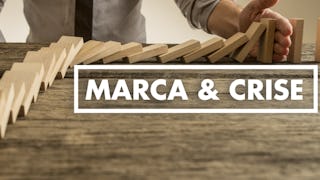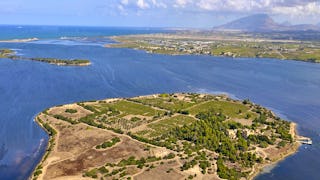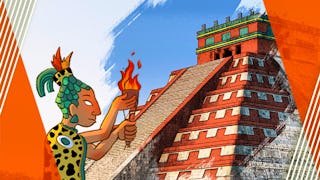Filter by
SubjectRequired
LanguageRequired
The language used throughout the course, in both instruction and assessments.
Learning ProductRequired
LevelRequired
DurationRequired
SkillsRequired
SubtitlesRequired
EducatorRequired
Explore the Roman Course Catalog

The Chinese University of Hong Kong
Skills you'll gain: Culture, Social Studies, Cultural Diversity, World History, Ancient History, Diversity Awareness, Sociology, Research, Science and Research, Political Sciences, Economics

Fundação Instituto de Administração
Skills you'll gain: Crisis Management, Decision Making, Brand Management, Branding, Marketing Communications, Corporate Communications, Brand Strategy, Public Relations, Risk Management, Communication, Communication Strategies, Management Information Systems, Auditing

Sapienza University of Rome
Skills you'll gain: Ancient History, World History, Culture, Art History, Cultural Diversity, Community Development, Liberal Arts, Research, Research Methodologies, Social Sciences, Anthropology, Economics
 Status: Free Trial
Status: Free TrialMedCerts
Skills you'll gain: Medical Terminology, Anatomy, Pathology, Orthopedics, Medical Records, Medical Billing and Coding, Biology, Health Information Management, Physical Therapy

Universidades Anáhuac
Skills you'll gain: Culture, Sociology, Ancient History, World History, Cultural Diversity, Anthropology, Social Sciences, Art History
 Status: Free
Status: FreeCoursera Project Network
Skills you'll gain: Underwriting, Banking, Price Negotiation, Investment Banking, Financial Market, Corporate Finance, Financial Analysis, Regional Sales

University of Colorado System
Skills you'll gain: Art History, World History, Intercultural Competence, European History, International Relations, Cultural Diversity, Culture, Research, Research Methodologies, Governance
 Status: Free Trial
Status: Free TrialCalifornia Institute of the Arts
Skills you'll gain: Logo Design, Style Guides, Branding, Typography, Graphic and Visual Design, Brainstorming, Design Research, Adobe InDesign, Creativity, Storytelling, Adobe Photoshop, Color Theory, Design Elements And Principles

Universidad Austral
Skills you'll gain: Curriculum Planning, Aesthetics, Instructional and Curriculum Design, Research, Liberal Arts, Pedagogy, Art History, Curriculum Development, Creativity

Coursera Project Network
Skills you'll gain: Canva (Software), Advertising, Instagram, Marketing Materials, Content Creation, Social Media, Social Media Content, Facebook, Social Media Marketing, Design, Graphic and Visual Design
 Status: Free
Status: FreeCoursera Project Network
Skills you'll gain: Pinterest, Marketing, Social Media Marketing, Business Marketing, Online Advertising, Target Market, User Accounts, Regional Sales

Coursera Project Network
Skills you'll gain: Exploratory Data Analysis, R Programming, Data Manipulation, Statistical Programming, Data Literacy, Data Analysis, File Management, Integrated Development Environments, Programming Principles, Data Structures
Roman learners also search
In summary, here are 10 of our most popular roman courses
- Structuring Values in Modern China: The Chinese University of Hong Kong
- Gestão de Marca & Crise de Imagem: Fundação Instituto de Administração
- Alle origini della civiltà mediterranea: archeologia della città dal Levante all’Occidente - III-I millennio a.C.: Sapienza University of Rome
- The Skin, Bones, and Muscles: MedCerts
- Cultura Maya en Yucatán: Universidades Anáhuac
- Финансирование банка через облигации: Coursera Project Network
- Coexistence in Medieval Spain: Jews, Christians, and Muslims: University of Colorado System
- Brand New Brand: California Institute of the Arts
- Red de sentidos: Arte, educación y procesos creativos: Universidad Austral
- تصيميم قصص الفيسبوك والانستغرام باستخدام كانفا (Canva): Coursera Project Network










